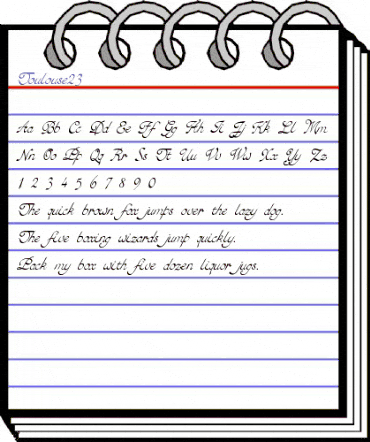

Well, pkg_add -r pkgname is roughtly equivalent to apt-get install pkgname. Now: my dream FreeBSD desktop would use apt-get-ish binary package management (handling versions and such) and still keep ports v2 around, somehow. If you have more packages installed, there’ll be more recompiling during an upgrade.
#Scribus fonts preview upgrade#
And you can’t have “more” recompiling – when you upgrade, you upgrade the packages you have installed. I wander why you say that – I spent two months with gentoo and came back screaming to ports, which gives me the same lean system with 1/10 of the configuration headache. I don’t think anyone is working on this though. pbi ignoring ports, prompt me that PCBSD are attempting to build a desktop OS despite being based on FreeBSD, rather than a preconfigured FreeBSD desktop (DesktopBSD’s approach).īut still, it brings FreeBSD desktop some publicity. The fact that (I think) PCBSD doesn’t, for example, install bash by default (DesktopBSD does) which is something most Linux users would do, and. Now I am rather sceptical about PCBSD.pbi probably can’t scale much… but if it can and I am wrong, then it’s a step in the right direction for desktop Un*x. Binary upgrades are preferred to compiling from source (don’t know how well this works, haven’t used it enough). Nice way to get started with FreeBSD (be sure to read the handbook – it’s a must). What it gives you is a “proper” FreeBSD, with a quick & easy installation. What I have tried is DesktopBSD, and it looks good to me, I think it deserves more public attention. To be honest I haven’t tried PCBSD yet, I plan to one of these days. Too much recompiling (even more than Gentoo). It was great from a Slackware/Gentoo perspective, but ports were weak for upgrading the system. I am a Linux person as well, and have used FreeBSD as my everyday desktop for 2 months in the past.
#Scribus fonts preview update#
* Online Update Manager – Manually or automatically downloads and installs updates for your operating system, without touching your installed programs. * Very clean minimal install (1 installation CD), no cluttered mess of programs and dependancies to untangle. * PBI packages are self-contained, and do not rely on numerous system dependancies. * Friendly and helpful support community.

* Graphical tools for system administration and support. * Easy to use package management system (PBI), but also works with standard FreeBSD ports/packages. * Advanced stability & performance that FreeBSD users have come to expect. * Graphical system installer, makes the process of installing your system take only minutes. * Fully functional desktop operating system, running FreeBSD 6.0 under the hood. Here are the features they claim to add (?) to FreeBSD on their web site: I guess the PC-BSD project is looking for a fine polish that would help gain it mass market appeal? How much extra value does the pc-bsd project add? I don’t understand why it takes so many months to finish 1.0, considering it’s based on a current release of FreeBSD. (And if ever, this should probably remain an optional feature.)Īnd yes, I realize that's likely why the font browser exists.I really like (Free)BSD a lot and will certainly install PC-BSD once it’s out of beta and RC stages. Not sure how much work it would realistically incur extending the dropdown CellRenderer. Probably requires creating a bunch of PNGs for all installed fonts. I'm assuming this would be a massive effort. Since it's only mapping the default font names to rendered font previews, it really just pertains text properties or the story editor. So anyway, it would be awesome if there was a way to generate and reuse some prerendered/cached previews of installed fonts. (It's even more of an annoyance for Inkscape, TBH.) 0016838: Cache prerendered fonts for text properties selection dropdownįontconfig/Freetype are pretty slow in generating a list of font previews, which makes initial style selection or live adaptions somewhat tedious.


 0 kommentar(er)
0 kommentar(er)
